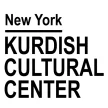"Dancing Amid Fire, Rising Above Ruins" by Essmat Sophie

On October 3, 2023, the Book Club discussed:
Dancing Amid Fire, Rising Above Ruins by Essmat Sophie (London: Transnational Press, 2023), 380 pages
Essmat Sophie was born and raised in the Kurdish region of Iran (Rojhelat). After spending several years in the United States, she now lives in Norway. She is the author of the novels Last Day of Autumn (2021) and Dancing Amid Fire, Rising Above Ruins (2023). She translated poems of Sherko Bekas from Kurdish into Norwegian as In the Eye of the Storm (2013)—the book won Norway’s Ordknappen literary award. She translated Women’s Journey from Shadow to Light from English into Persian. She is also a film director and film producer. Her animated short film Dancing Amid Fire, Rising Above Ruins (2023) won her an honorable mention for best director of animation at the Cannes Film Awards festival.
Dancing Amid Fire, Rising Above Ruins immerses the reader in Kurdish life in Iran. The novel’s main character, Tara, native to Rojhelat like the author, is now living in Norway and trying to cope with her traumatic memories of life in Rojhelat, under the Islamic rulership.
Our Book Club found it striking that at the start of the novel, Tara is in therapy. In Kurdish culture, it’s fairly taboo to process things that way, a reader observed. For us, to admit personal trauma is to break a boundary. Sophie replied that the therapy hasn’t healed Tara, whose wounds are still open..” Her Norwegian boyfriend tells her to forget the past, but only by confronting the traumas that she and her family and friends experienced can she overcome darkness.
One major link to her past is Hiwa, a philosophy professor with whom she once studied. He is older, and he his character transports the reader back to the time before Islamic Revolution. Hiwa lived through that time. As an academic, he is a respected man in the society. But Hiwa is also a narcissistic womanizer, a selfish man who uses his status to demean the women who admire him. Hiwa is the opposite of his name—he offers no hope. In the revolutionary events of the 1970s, he was present but didn’t participate, didn’t take sides.
A childhood friend of Hiwa’s, Hanar, has a far different personality. They grew up on the same street in Sanandaj, but where Hiwa became an academic and shied away from conflict, Hanar became an active personality. She participated in a women’s uprising and in a 24-day war in Marivan, in which Kurdish self-government resisted the Islamic Republic.
Hanar’s remarkable mother, Magholi, is a shaman, a storyteller, who gives hope to those around her. When one Book Club member remarked about her striking personality, Sophie noted that Rojhelat has many Mahgolis.
Kurdish resistance to the Shah, then to the Islamists, forms the historical core of the novel. “People younger than me don’t know much about the Shah period,” Sophie observed. She told us she meets people from other parts of Kurdistan who know nothing about Rojhelat, or the 24-day war that Kurds fought. “I could have written an academic book about people in Rojhelat,” she told us, “but a novel can do something that an academic book cannot: it can go inside the individual to explore private thoughts and desires. The reader will remember Tara and Hiwa, and literature and art go beyond borders.”
The novel later grapples with uncertainty over the future of Rojhelat, of Kurds in Iran. In a lengthy setpiece, several representatives of leading intellectual tendencies argue about this torturous issue, in a chaotic discussion that is inconclusive. “Those discussions are normal,” Sophie told us.
Mahgoli tries to provide a resolution to the discussion by saying that our identities are multiple, and we have to accept that. Sophie agrees with this view. “We need multiple belongings,” she told us. “We care about our identity, but we also have to have multiple belongings. We have to be proud of our culture and our history, but we have to learn about what we have done,” even critically.
The Book Club asked her about male dominance in the Kurdish literary world. Sophie agreed that it’s pervasive. “A man writes a novel and everyone talks about it,” but women get less attention or are not taken seriously. When she translated Sherko Bekas, she said, certain men tried to discourage her.
Finally, the novel opens the question of female sexuality. In Chapter 13 Tara narrates her own erotic desire, while remembering her beloved husband. (He was assassinated.) For a woman to talk about her body that way, Sophie told us, may be acceptable in English, but it’s taboo in Kurdish. “It’s taboo,” she emphasized. “I’ve never seen a woman in our community talk about it so openly.” Some Kurdish men, she said, reacted to that chapter with anger that a woman would write about eroticism. It made the book difficult for some to support.
For more about the bold and taboo-breaking work of Essmat Sophie, please visit her website www.essmatsophie.com.
The book is available for purchase here.















